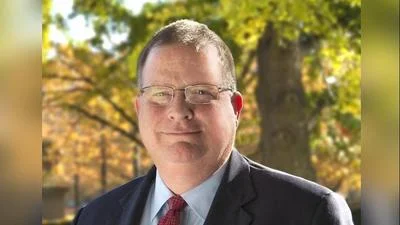Maria Griego Economic Equity Director | New Mexico Center on Law and Poverty
New Mexico's at-risk students continue to face significant educational challenges, according to a motion filed by the Yazzie/Martinez plaintiffs with the First Judicial District Court. The motion claims that the state has failed to provide a constitutionally sufficient education and calls for a comprehensive action plan led by the Legislative Education Study Committee (LESC).
The joint motion, which was unopposed by the state and represented by the New Mexico Attorney General, requests that this plan be developed with input from various stakeholders, including plaintiffs, educational leaders, experts, state and tribal government officials, and advocates. It also emphasizes the need for specific timelines, measurements, and accountability mechanisms.
The Yazzie/Martinez v. State of New Mexico lawsuit addresses educational inequities affecting Native American students, English language learners, students with disabilities, and low-income students. The recent motion highlights several critical areas where the state's efforts have fallen short.
In May 2022, the Public Education Department (PED) issued a draft plan in response to a 2018 court ruling but received substantial criticism for failing to address essential elements needed for compliance. Concerns included unclear goals, lack of targeted funding, absence of clear timelines, and no identified responsible parties. Despite promising an updated draft by September 2022, PED did not produce it.
The plaintiffs argue that these failures have had severe consequences for at-risk students. Outcomes in reading, math, and science remain as poor or worse than they were in 2017. Issues such as teacher shortages, lack of culturally relevant curricula and instructional materials, insufficient bilingual programs, and inadequate extended learning opportunities persist.
Melissa Candelaria from the New Mexico Center on Law and Poverty emphasized: “All we want for our children is to have the best education and to be successful in life... Our motion rectifies this by demanding a concrete remedial plan.”
Wilhelmina Yazzie stated: “We know our students can do great things... This motion is about making sure that the state takes real measurable actions.”
Alisa Diehl added: “By filing this motion we are demanding that the state develop a comprehensive plan... This is about more than correcting past inequities; it’s about investing in our children’s future.”
Marsha Leno highlighted: “Our children remain our greatest hope... Our Native students must see their history culture and Native languages valued.”
Preston Sanchez remarked: “Today we filed a pivotal motion asking the Court to enforce its previous ruling... We are committed to holding the State accountable.”
James Martinez shared: “This motion is a crucial step to ensure that the state’s commitment to education is more than just words.”
Acoma Governor Randall Vicente supported this legal action stating: "We need to see results; we need to see outcomes; we need to see achievement gap for Native children closing until gap is gone."
Loretta Trujillo added: "This motion is an opportunity for state fulfill its obligation..."
Laurel Nisbett pointed out: "Over six years after court’s ruling ...students with disabilities continue suffer dismal educational outcomes."
Regis Pecos concluded: "The immense failure of leadership reflected high turnover department vested responsibility lead us out crisis not just troubling it failure dereliction duty."
If granted LESC staff will submit new draft plan Plaintiffs May 1 2025.
For media inquiries contact Paloma Mexika at paloma@nmpovertylaw.org or 505-305-2559.









